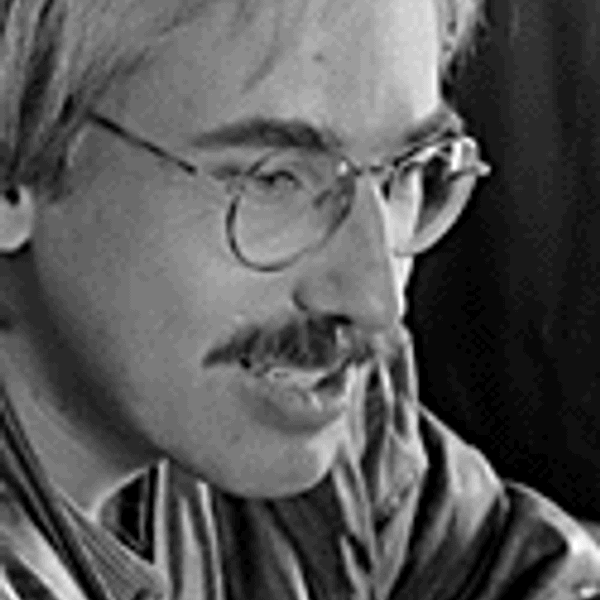Lia Purpura, Skate’s Egg Case (detail), featured in AGNI 102
Shadowboxing: Novelist Eats Babies!
“Roth Cuts Fiction!” bannered the headlines across the front pages of dailies worldwide. Well, not exactly. Actually, it was a paragraph on page three of the Arts section of the June 28th Times: “Philip Roth Gives Up Reading Fiction.” But for fiction writers everywhere, it was as though the Pope had stood before the altar in St. Peter’s and announced, unapologetically, that he had lost his faith in Jesus. He would, however, keep saying Mass on Sundays and alternate Wednesdays.
Philip Roth is one of the most celebrated fiction writers of his generation, author of some thirty books, mostly novels. He has received two National Book Awards, two National Book Critics Circle Awards, two Pen Faulkner Awards, and a Pulitzer, to give you just the short list. His novels and stories have inspired a handful of films, with rumors of more to come. The Philip Roth Society’s website offers a Twitter feed so fans may stay abreast of the Master’s doings.
This isn’t the first time Roth has voiced doubts about the future of his art. Before this, however, his diagnoses placed the malaise outside him: “The book can’t compete with the screen,” he said in an interview a few years back. “I doubt that aesthetic literacy has much of a future here,” he remarked elsewhere. Apparently the disease has spread and the doctor himself been infected.
Roth isn’t the only practitioner afflicted. Last year, recovering novelist turned nonfiction maven David Shields published Reality Hunger, a bricolage of aperçu about the way the urgencies of contemporary life are changing how we read-and, by extension, what we think about and how we think it: “something has happened to my imagination, which can no longer yield to the earnest embrace of the novelistic form.”
From where does this crisis of faith spring? Is it sour grapes-no Nobel for Philip, not even a measly Pulitzer for David? Certainly announcing the death of a centuries-old art is sure to generate a flurry of obits and stimulate the curiosity of professional mourners. The warning signs have been with us a while. The French declared their concern right after the Second World War when novelist Robbe-Grillet insisted that telling stories about “characters” as if they were real was a dead end. In the sixties, Roth himself published an essay in which he worried that fiction was having a hard time competing with headlines.
Who doubts that our heavily mediated lives leave us wanting genuine nourishment? Yet despite the thousands of self-help volumes, true confessions, myriad testimonials, memoirs, and reality-TV shows, our hunger has not been appeased. Could it be because the vocabularies for intuiting and intimating the complexity of reality need imagination to serve as an activating agent, the yeast that enables order and meaning to arise from the mess of life’s miscellanies?
When I was an undergraduate, the literary critic Lionel Trilling visited our school. He’d been invited there by my literature prof, Robert Maurer, who had also been Roth’s teacher several decades earlier at Bucknell. (Roth even dedicated a novel-Our Gang-to him.) During the Q&A the 68-year-old Trilling announced that he no longer read fiction. Fiction, he explained, is about “becoming” and he was now mainly interested in “being.” At that point Maurer turned to a classmate of mine and whispered “May I never cease being interested in becoming.”
Like ennui, obesity, and AD/HD, “reality hunger” appears to afflict mainly first-world countries. One of the writers Roth introduced to the West when he edited Penguin’s Writers from the Other Europe series, Czech novelist Milan Kundera, had a clear sense of fiction’s purpose. In a series of powerful essays composed over decades, he argued that the work of fiction is no different from that of science: its job is to add to the store of human knowledge. During the eighteenth century the novel became the medium through which “the West” redefined the individual, with all his newly won “inalienable” rights and freedoms. We have become who we are because of the self-reflection it has encouraged. Is it possible that we believe we are done with becoming, that our evolutionary journey has reached its end? Are we poised to turn away from soul-making? Does that sound like a good idea to you? I’m with Robert Maurer.

Askold Melnyczuk
Askold Melnyczuk—the founding editor of AGNI, for which he received the PEN/Nora Magid Award for Magazine Editing—is the author of four novels and a book of stories. What Is Told (Faber, 1994), was the first commercially published work of fiction in English to highlight the Ukrainian refugee experience and was named a New York Times Notable. Other novels have been selected as a Los Angeles Times Best Book of the Year and an Editor’s Choice by the American Library Association’s Booklist. His most recent book is a collection of stories, The Man Who Would Not Bow. His selected poems, The Venus of Odesa, is forthcoming from Mad Hat in summer 2025. A book of selected nonfiction, With Madonna in Kyiv: Why Literature Still Matters (More than Ever), will be published by Harvard University Press in 2026. He has edited a book of essays on the St. Lucian Nobel Prize–winning poet Derek Walcott and is coeditor of From Three Worlds, an anthology of Ukrainian writers from the 1980s generation. He’s the recipient of a Lila Wallace-Reader’s Digest Writers Award for fiction, the Heldt Prize for translation, and the George Garret Award from AWP for his work in the literary community. Individual poems, stories, essays, and translations have appeared in The New Yorker, The Paris Review, The Gettysburg Review, The Missouri Review, and elsewhere. Also the founder of Arrowsmith Press, he has taught at Boston University, Harvard, and Bennington College and currently teaches at the University of Massachusetts Boston. (updated 5/2025)
